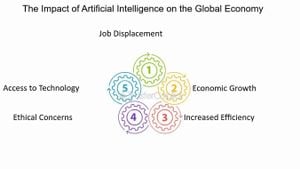For many workers across Russia, the holiday schedule for 2025 is shaping up to be disappointing as long weekends will be absent throughout February and March. National holidays, which include Defender of the Fatherland Day on February 23 and International Women's Day on March 8, both fall on weekends this year, leading to the unfortunate decision to shift these holidays to later dates.
According to the Ministry of Labor and Social Protection, these adjustments were made to optimize the overall holiday calendar, aiming to create longer breaks during the May holiday period. Anton Kotyakov, the Minister of Labor, noted to TASS, "It turned out so, with March 8 and February 23 falling on weekends, we used these days to create sufficiently long May holidays." This decision ensures minimal fragmentation of work weeks and seeks to provide comfort to the workforce.
The impact of this shift means there will be no shortened working week leading up to Defender of the Fatherland Day, with February 21 remaining as a full workday. Instead, Feb 23 will be observed only with the two regular weekend days preceding it, which comprise February 22 and 23. Notably, holiday pay regulations remain unchanged; employees working on these traditionally holiday dates will be paid double or may opt for compensatory days off instead. "For work during holidays or weekends, employees must be paid double, or they can agree to take another day off instead of the double rate," Agaeva stated.
Historically, these holidays have allowed Russians time for rest and celebrations, yet this year has shifted the focus to longer breaks during May. The upcoming May holidays stretch from May 1 to May 4 and again from May 8 to May 11, with about three workdays to follow between them, accommodating for the recent holiday shifts. Citizens will enjoy these mini-vacations, thanks to the redistribution of days off by the government's decree made on October 4, 2024.
While some might feel let down by the lack of long weekends early on this year, the hope is to provide greater ease and comfort later with prolonged spring breaks. Kotyakov affirmed this sentiment, indicating the calendar is crafted carefully to avoid interrupting the work week, and prioritizes citizens' needs.
For many employees, the twists and turns of labor laws and holiday timings can often be confusing. Yet for 2025, the message from the Ministry of Labor is clear: plan for May if you’re hoping for some time away from work. This restructuring of holidays highlights the government’s approach to not just celebrate but also balance the work-life scenario for its citizens.
Looking forward, as additional holidays draw near, discussions about how they could be shifted for more favorable work weeks continue to circulate among workers. Indeed, the scheduling of holidays plays a significant role not only for the structure of work weeks but also for the mental well-being of the workforce, which enjoys the elements of rest and relaxation needed for productivity.
Despite the immediate disappointment for some, the potential for extended recreational time during the warm May days offers glimmers of excitement to look forward to, keeping spirits high as workers navigate the year. The long weekends of May hope to compensate for the February and March lull, ensuring Russians still find ways to unwind after the busyness of winter.
Conclusively, the changes made to the holiday calendar reflect broader themes of labor organization and societal well-being, indicative of Russia’s adaptable stance on holiday scheduling rooted firmly in fiscal and social responsibility. Therefore, as 2025 progresses and more holiday changes evolve, the anticipation for what is to come remains high, promising engaging public discussions and reflections on future labor policies.



